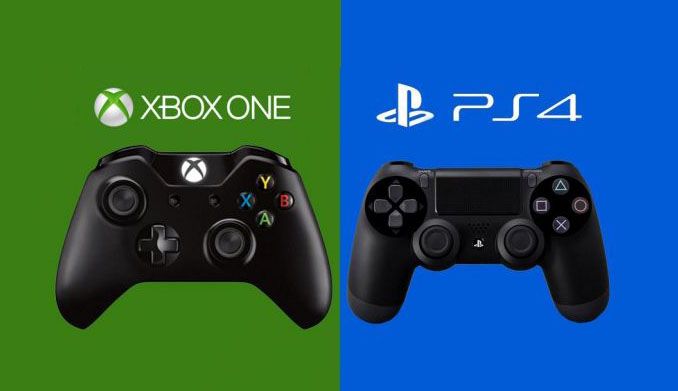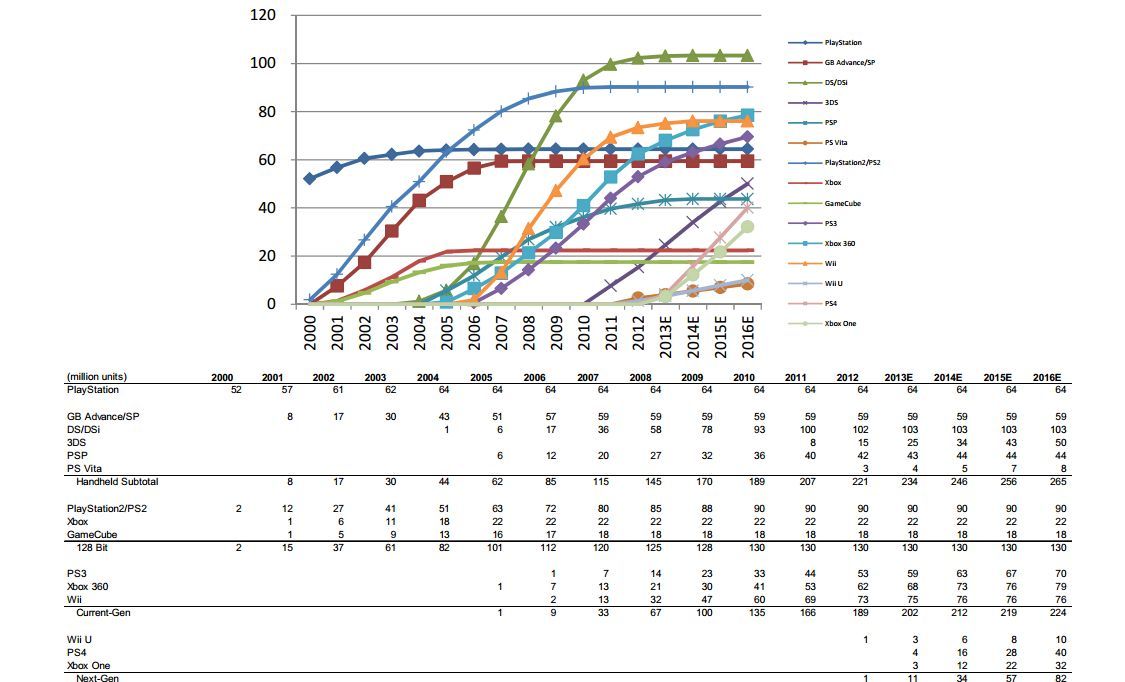Wedbush's Equity Research Department released today an enormous document with its predictions about this year in the gaming industry, and according to the analysis firm the new generation of consoles will sell the following amounts:
- PS4: 12 Million
- Xbox One: 9 Million
- Wii U: 3 Million
The document, as the name of the firm will suggest to those following the industry, was spearheaded by famous (and at times infamous) crystal ball holder extraordinaire Michael Patcher, together with Nick McKay and Nick Citrin.
According to the document, the Wii U's delay in embracing online multiplayer may prove fatal, and the console is expected to "languish in third place" in the console race. The Wii U is defined "a bust," and Nintendo is expected to pursue a turnaround only for the next two years. Mario Kart and Smash Bros could increase sales "modestly," but the report mentions that they're unlikely to move more than a couple million consoles each.
The PS4 is defined a "phenomenal success right out of the gate," and its increased power compared to the PS3 is expected to be advantageous for handling "the many multimedia capabilities of the console."
The Xbox One is said to "also have achieved great success," but the analysts think its $500 price point may have put some consumers off, and that's the main reason why the prediction is lower than the one for the PS4.
The 3DS is described as a "compelling game play experience," and Nintendo is praised for having supported it for outstanding hardware, but smartphones and tablets have eroded the more casual end of Nintendo's target, so the prediction for the portable is of 15 million units sold each year going forward.
No firm prediction was made for the PS Vita, described as a sophisticated and sleek handheld device, but one that failed to sell well at the outset due to the high price point, and still didn't manage to gain momentum after the price cut to $199 last year.
The document also offers a very positive forecast for the whole console industry, that is predicted to show a compounded annual grow ratio of 9% between 2014 and 2016 for software in North America and Europe. To be more precise software is expected to generate $12 billion in sales in 2014, $14 billion in 2015 and $15 billion in 2016. Only handheld software (DS, 3DS and PS Vita) will unfortunately remain stationary, while its market will continue to shrink. Attach ratios are also predicted to be higher than in the previous generation for home consoles.
According to Pachter and his colleagues, the market penetration of home consoles will remain pretty much stable by the end of the new generation in North America and in Europe, but will increase in other areas. In addition to that, Sony and Microsoft will gain market share due to "strong demographics, additional functionality, increased market segmentation and higher marketing spending." This will happen at the expense of Nintendo, that is expected to lose "as much as 80% of its sales," with a large percentage of Wii owners moving on to PS4 and Xbox One.
Below you can see a graph with Webush's estimates combined with NPD's for the installed base of every console on the market as far as 2016. According to the graph PS4 will have sold 40 million units by then, Xbox One 32 million and Wii U will be lagging behind with 10 million.
In addition to that, the report also mentions that PlayStation Now is unlikely to change the landscape of the industry. According to Pachter and associates it won't gain much traction due to the lack of compelling software, and more specifically third party games less than two years old.
Third party publishers are expected to continue supporting PS3 and Xbox 360 with their biggest brands and PS4 and Xbox One with all their intellectual properties. The Wii is expected to be completely abandoned by the end of this year and the Wii U will suffer pretty much the same fate from "most third party publishers" by the end of next year, "provided that Nintendo doesn't cease production of the console before that." Electronic Arts' apparent decision to abandon the console last year is defined a "smart" one.
Third party publishers are also expected to continue focusing on their own intellectual properties, while licensed content has been largely abandoned.
If you want to learn more, you can read the whole 174 pages of the document here. While your mileage may vary on the actual merit of the predictions, it's definitely an interesting read.


